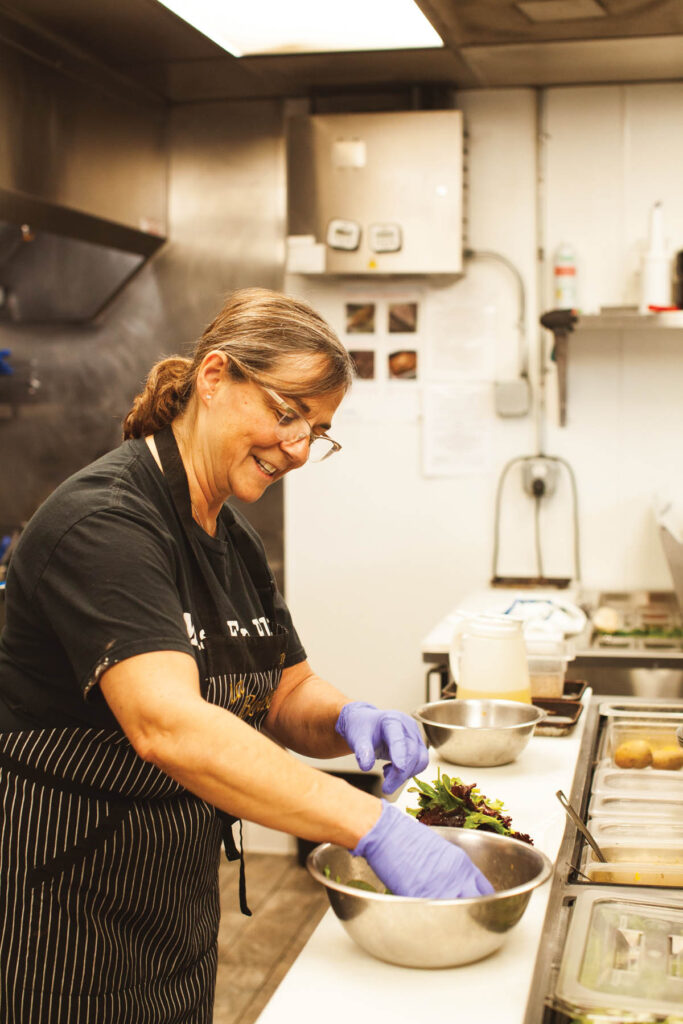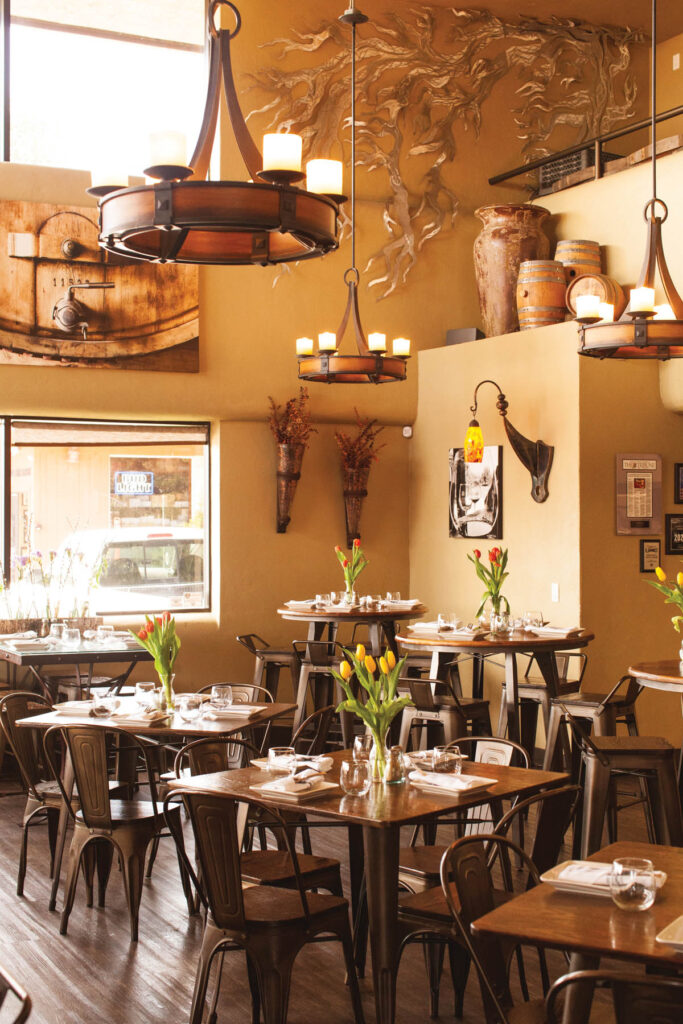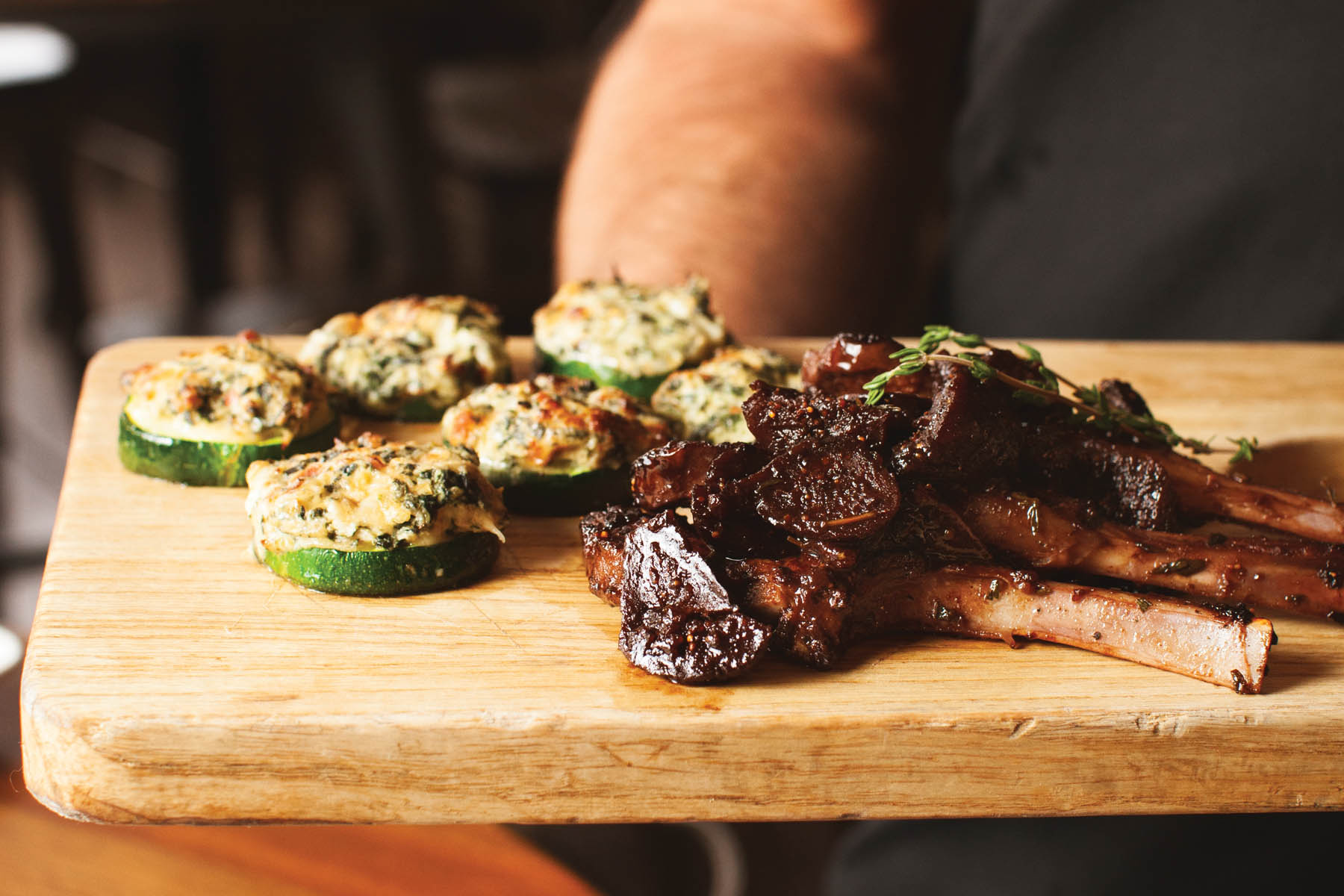
Homegrown, Local Taste: La Bodega Tapas
Story by Aja Goare
Photography by Jennifer Olson
As they approach the restaurant, those who come to dine at La Bodega Tapas are greeted by a chalkboard listing the local sources of ingredients used for the day’s menu. The restaurant offers cuisine inspired by faraway places like Italy, the Caribbean and Spain, but prepared with produce, meat and cheese made next door.
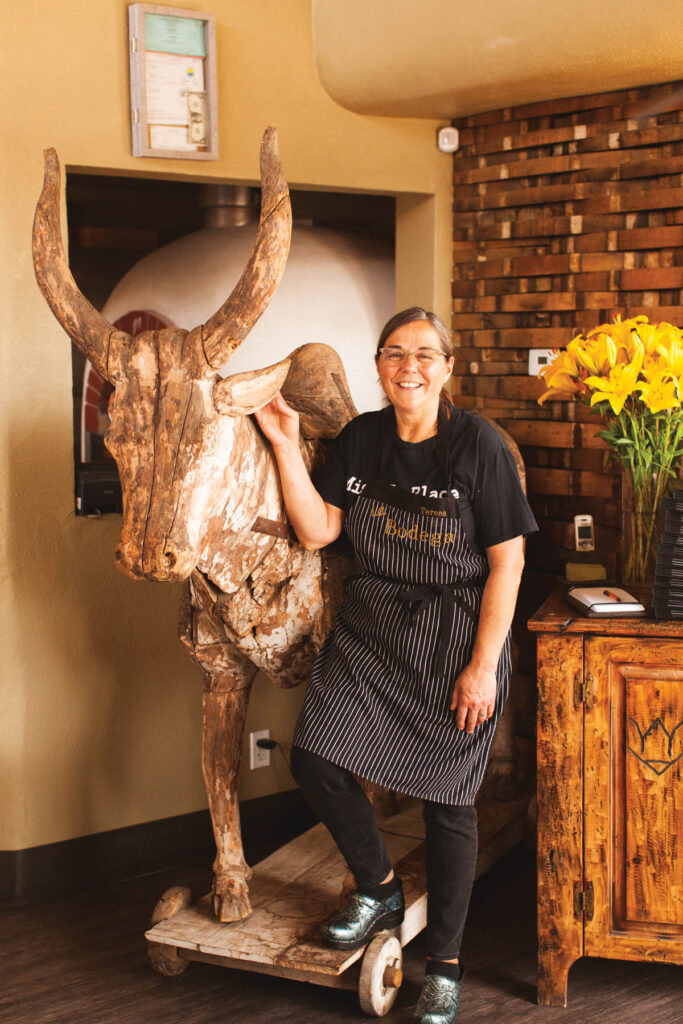
“I go to the farmers’ market twice a week and connect with local farmers and producers,” says Chef Teresa Cordeiro. “I want to taste the freshness. You can really tell the difference. It makes your palate dance.” Rather than import dried meat from Italy, she sources from Alle-Pia. She calls Central Coast Creamery when she’s low on cheese, and visits Bautista Family Farms when tomatoes are in season.
Local partnerships have been a priority for La Bodega since it first opened five years ago. In that vein, the menu changes monthly in order to remain seasonal and locally influenced. While products grown and picked by individuals who live and work in San Luis Obispo County may be more expensive than an order processed through Cisco, Teresa says the decision is simple. “My mom and I had a garden in the backyard when I was younger and what we grew is what we ate,” she recalls. “Sure, you can buy tomatoes at the grocery store in January, but they weren’t ripened by the sun so it didn’t bring out that sweetness. If it’s not in season, we don’t serve it.”
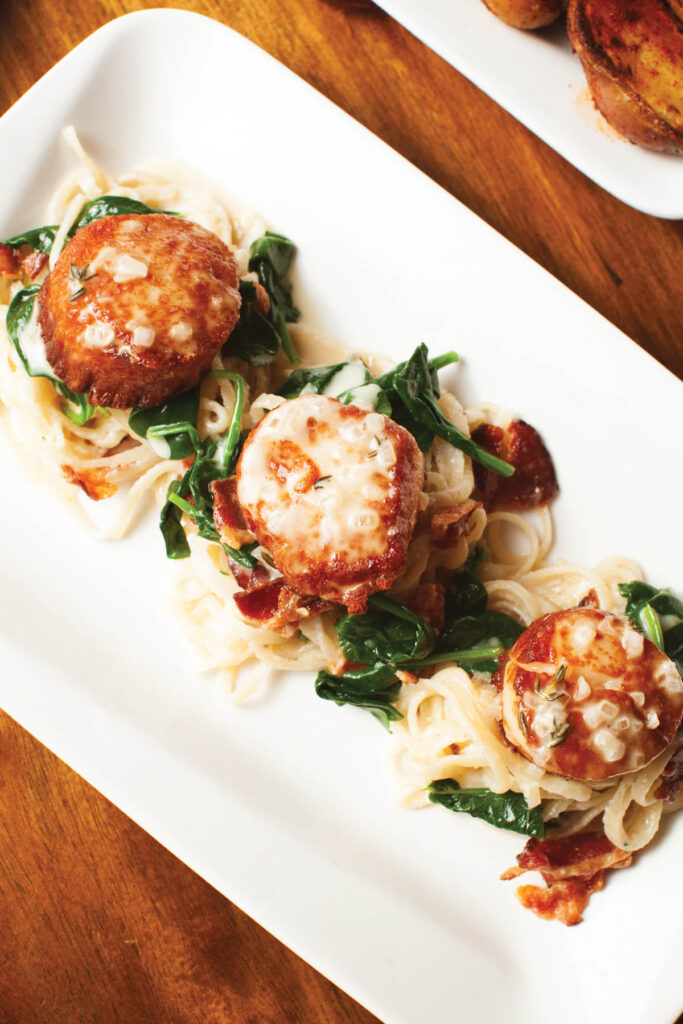
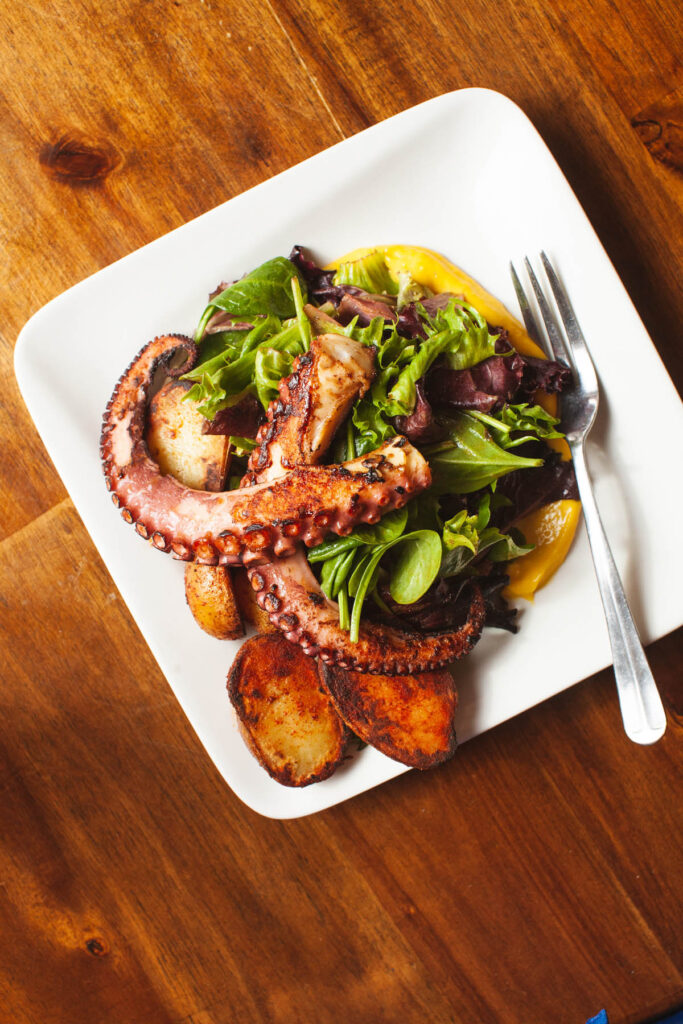
Having spent 27 years in the health care system as a nurse practitioner, Teresa is acutely aware of the role that food and nutrition play in wellness. The food at Bodega is the intersection of Teresa’s dedication to health and passion for travel abroad. Take, for instance, the Valencia paella: locally caught shrimp, clams, mussels and cod, along with chicken, Spanish chorizo, peas, bell peppers and herbs served with saffron arborio rice. “That’s a staple,” she says. “People ask me why it’s so good and the reason is I buy local and make small batches, so everything is fresh. We have very little waste because I buy proportionally.”
The beer, wine and spirits on the menu also come from neighboring producers: vodka from Tin City, bourbon from Rod & Hammer, beer from Firestone Walker Brewing Company and Central Coast Brewing, as well as Barrelhouse Brewing and Liquid Gravity Brewing. “We only serve wine produced from Paso Robles to Santa Barbara,” she explains. “Why would I look anywhere else? We have great products right here.” Even the art on the walls is made by local artists.
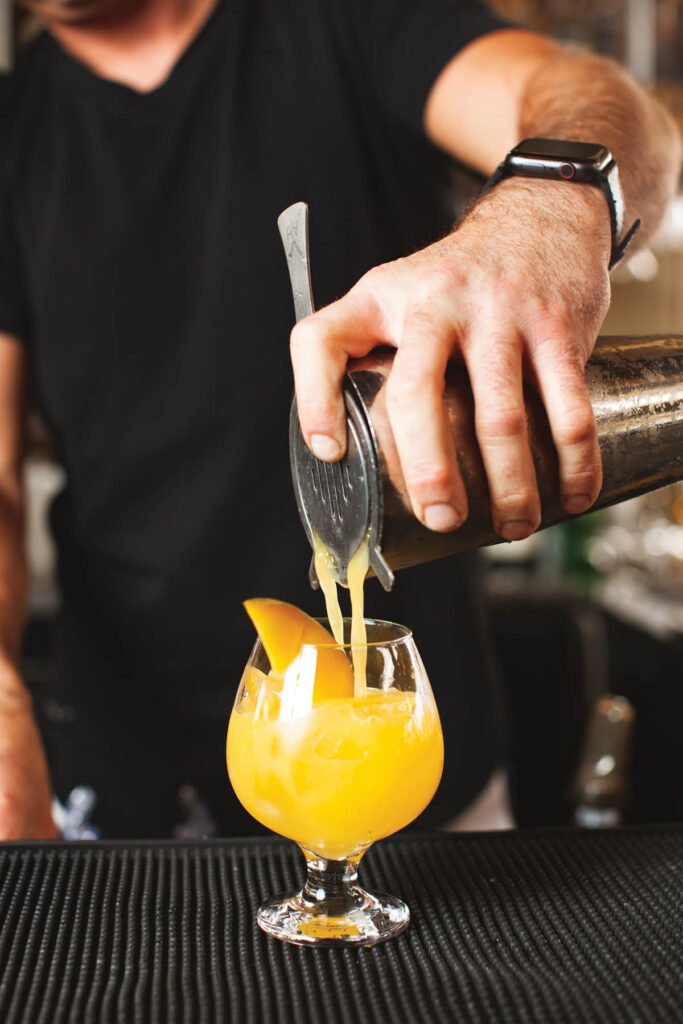
As one of these partners, Rod & Hammer Co-founder Rodney Cegelski, puts it, a restaurant owner’s decision to source locally supports both the local economy and local people. “Restaurants can choose to sell a spirit from Kentucky or our award-winning California rye whiskey, but we employ over 125 folks who care about the community,” he says. “When a restaurant puts our whiskey in one of their signature drinks, it’s an opportunity to share a local story with their guest and encourage them to come tour our distillery and learn firsthand about our local crafts.”
And Teresa’s support of local producers is reflected right back. These days, farmers will reach out to Teresa to let her know when fruit and vegetables have come to market. “I’ll get a call from Rocking Chair Farms telling me that their peaches are ready, so I’ll plan for a peach and burrata salad on the menu,” she says. “They’ll drive them to me from Kingsburg, about two hours east of here, on their way to the farmers’ market.”
This community of collaborators empowers a local food network that can remain strong even in times of national supply chain challenges. And another great effect is that consumers can dig in to a plate of food grown right in their backyard by neighbors who also call this area home. “These ingredients didn’t sit on a truck or plane for days just to end up in a walk-in freezer,” Teresa shares. “I don’t bring processed food to the table. This is like my home — a place for gathering, a time for discussion and nourishment.”
